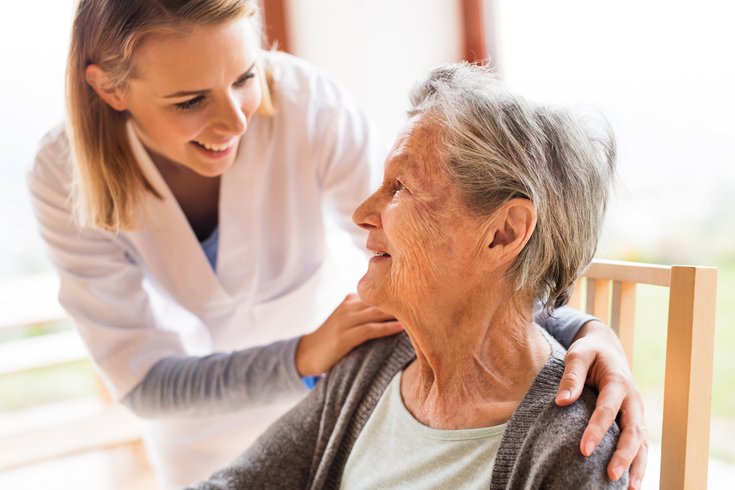
About 58% of people over age 65 think that depression is a normal part of aging. Myths like this often prevent seniors from having mental illnesses identified and treated. (Mental Health America Survey)
According to the CDC (cdc.gov), an estimated 20% of people over the age of 55 have a mental health issue. Many mental illnesses can significantly affect physical and social well-being. Mental illnesses can, however, be hard to distinguish from regular signs of aging.
8 Common Symptoms of Mental Illness in the Aging

Signs of mental illness in older adults may be expressed verbally during conversations. Often, though, the elderly exhibit symptoms behaviorally or physically instead. Look for these eight symptoms in the elderly to spot mental illness during the aging process.
1. UNUSUAL AVOIDANCES
For seniors, avoiding extreme heat or exhausting activities makes sense. However, avoiding eye contact, using the bathroom, touching particular objects, or participating in events is atypical. Watch for extreme or unusual avoidances.
2. DIFFICULTY MAKING BASIC DECISIONS
Decision-making is affected by memory, emotions, and judgment processes. When seniors struggle to make basic decisions or change their minds frequently, the issue may be caused by mental illness.
3. UNEXPLAINED STOMACH DISTRESS
A person’s gut reveals much about their physiological state. If a senior has unexplained digestive problems, they may be experiencing feelings or thoughts due to mental illness that is causing distress.
4. AGITATION OR MOODINESS
Irritability among seniors may occur as a result of physical conditions like chronic pain. However, agitation and moodiness that is disassociated from a reasonable cause can indicate a mental health problem.
5. CHANGE IN APPETITE OR SLEEPING PATTERNS
Often a change in eating or sleeping habits is the first sign people notice of depression. Pay attention to a senior’s routine and ask questions to understand why their habits may otherwise be changing.
6. DISINTEREST WITH FATIGUE
Feeling tired can occur as a result of aging. When tiredness becomes constant or chronic fatigue, it may be a sign of something more. Be on alert for disinterest in hobbies or a decrease in socialization due to fatigue.
7. HALLUCINATIONS OR DELUSIONS
If a senior recall information that doesn’t make sense or that never occurred, they may be experiencing hallucinations or delusions. These symptoms may present as paranoia or as simple confusion.
8. SUDDEN CHANGES IN BEHAVIOR AND ATTITUDE
It is unusual for optimistic seniors to suddenly feel sad all of the time with no cause. Likewise, a senior who participates in a hobby regularly and without explanation stops may be struggling with a mental illness.
…


